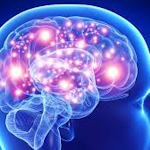
Dr. Maxwell Nartey
Professor of Symptometric Science, American School of Symptometry, NFP
On March 31, 2021, I posted an article rebutting the gene theory on Alzheimer’s disease. That article was more academic than informational. This time, I will be brief by answering specific questions.
What causes dementia or Alzheimer’s disease?
Cerebral anemia causes dementia or Alzheimer’s disease, and this is common in people with an anemic brain. Here are the facts.
Taking iron pills does not and cannot reverse anemia, but unfortunately, this is what most people do when they are told they are anemic.
Wherever iron and oxygen are absent, calcification automatically takes their place. After taking the iron pills, the next blood test will show that the iron level is back to normal, but it does not mean that oxygen and iron are in the cells. Calcification must first be removed for iron and oxygen to return to the cells.
Does the person with cerebral anemia decalcify their brain cells? No. This explains why calcification will continue to build up in their midbrain.
What happens in the midbrain?
The brain cells in the midbrain produce many neuropeptides and the neurotransmitter acetylcholine, which is important for memory, alertness, concentration or focus, reflexes, organization, tidiness, planning, intellect, reasoning, calculation, wakefulness, etc.
If the midbrain is calcified because oxygenated blood has not reached there in years, the growth hormone won’t stimulate the brain cells to divide, and insulin won’t stimulate those cells to take in glucose.
Without glucose, the cellular organelles won’t have the mitochondrial energy to produce acetylcholine, and the pineal gland won’t have the mitochondrial energy to produce melatonin for sleep, causing severe insomnia.
What happens when a person cannot produce acetylcholine?
They will start forgetting where they left their car keys, where they left the papers they had in their hand a few minutes ago, and so on. These are the telltale signs indicating the early stage of forgetfulness. The idea that forgetfulness is caused by aging remains questionable.
Dementia
Dementia is the next stage after forgetfulness because the forgetfulness is becoming more concerning.
For example, the person leaves the kitchen for the bathroom, but when they get to the bathroom, they forget why they came to the bathroom; they leave the bedroom for the garage and open the car door but forget why they came to the car; they go to the bank for a cashier’s check, once they get to the bank, they forget why they came to the bank, and so on. Things get progressively worse year after year. If corrective measures are not taken to stop and reverse brain deterioration, confusion, disorientation, etc., expect the worst.
Full-blown Alzheimer’s disease
Alzheimer’s is the next stage after dementia. At this stage, the midbrain has stopped functioning because interneurons have stopped connecting for thought processing, recognizing faces, names, addresses, colors, shapes, sizes, distances, etc., and recollection regarding age such as the ages of children or grandchildren, the neighbor’s names; telephone numbers such as the spouse’s telephone number, son’s telephone number, dates such as today’s date, days such as Monday, Tuesday, etc., the difference between today and yesterday, signature such as how to sign his or her name, counting such as counting 1, 2, 3, etc., choice and order of words such as, put the keyhole in the key instead of put the key in the keyhole, etc.; colors such as identifying an object by its proper color; vision disorders, hearing disorders, etc.
In Alzheimer’s, the calcification is widespread, affecting speech, eye coordination, mobility, agility, sensation, tidiness, alertness, calculation, organization, and how to do simple things such as turning on or off the stove, or the television, turning on or off the light switch, turning the doorknob to open the door, poor driving reflexes, etc.
The calcification will spread to the heart and arteries, affecting the heart rate, pulse, heartbeat, and blood pressure; the lungs, affecting breathing and causing shortness of breath, shallow breathing, panting, etc.; the nerves, causing trembling, weak grasp, dropping spoons, forks, knives, dishes, etc.; stiffness, such as stiff facial muscles affecting the smile, stiff elbow, stiff ankles, etc.
Why do more women than men suffer from Alzheimer’s disease?
More women than men suffer from dementia or Alzheimer’s disease because they are busy taking care of everyone else but themselves, typical of good caregivers.
Moreover, women menstruate, and men don’t. This physiological difference is not a disadvantage but rather an advantage that men do not have. Menstruation is a natural and well-programmed monthly cleansing process, allowing the new to replace the old according to natural law. No such monthly replacement takes place in men.
Unfortunately, most women have not been taught how to properly deal with heavy menses, causing them to suffer from forgetfulness when they are in their early thirties.
Mistakes made
Women who had heavy menses for years are more susceptible to dementia or Alzheimer’s than others. Why? Because as iron and oxygen are lost in the reproductive organs, they are also lost in the brain, and loss of iron and oxygen causes calcification.
Instead of using particulate ionization to remove calcifications to stop and reverse cerebral anemia and heavy menses, most women take iron pills, which is a big mistake.
The second mistake many women make is their continued reliance on herbs, iron supplements, and multivitamins for self-medication. Self-medication is good, but only up to a point because it cannot remove calcifications.
The third mistake is reliance on diet. No diet prevents or reverses cerebral anemia. But tea contains theophylline, and coffee and chocolate contain theobromine, both poisons.
Theophylline and theobromine block enzyme production and acetylcholine production, making it impossible to reverse forgetfulness, dementia, and Alzheimer’s disease.
Even if people stop drinking tea or coffee and eating chocolate, they must ionize the two poisons from their brains. Otherwise, there will be no improvement, raising their level of anxiety much higher than before.
Death from Alzheimer’s disease
The calcification of the cerebellum that houses the vasomotor, cardiac, and respiratory centers will cause cardiac arrest followed by respiratory failure to kill the person. Therefore, the recommendation is to keep decalcifying the cerebellum to delay or prevent death.
The solution
Dementia and Alzheimer’s disease require the removal of calcification from every part of the body, and this removal should not stop. Focusing the removal on the brain alone is wrong because the calcification has spread throughout the body.
Pharmaceutical drugs, dietary supplements, and herbs have never ended dementia and Alzheimer’s disease for the simple reason that they lack thermal energy to dissolve calcifications.
This is not the time for theories and prayers. It is time for results, and the time for results is now.
© Copyright 2024, The American School of Symptometry, NFP. No part of this publication may be reproduced or transmitted in any form or by any means, electronic or mechanical, including photocopying, recording, or by any information storage and retrieval system without the written permission of The American School of Symptometry, NFP. Library of Congress copyright number Txu 1-621-370, Washington D.C.


 Previous Post
Previous Post Next Post
Next Post